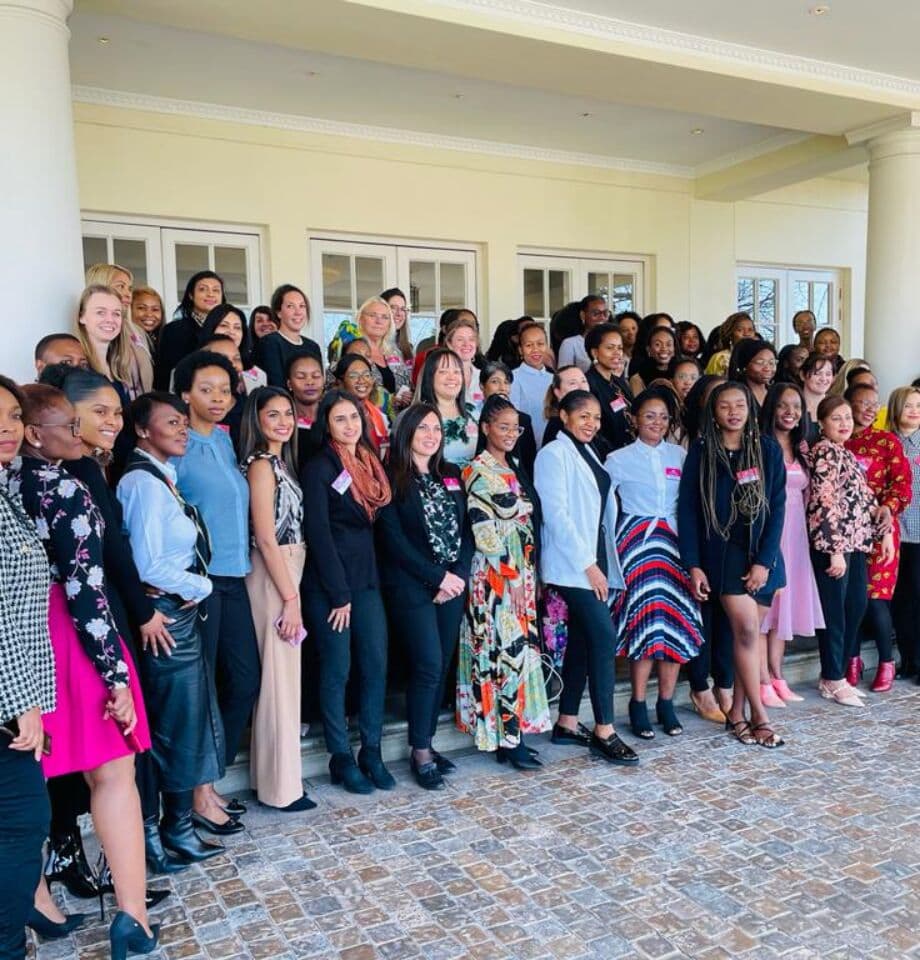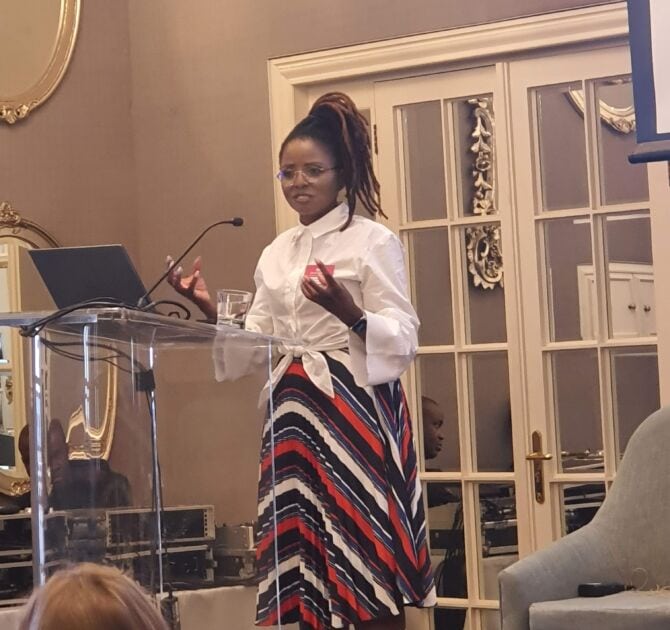Dr Rufaro Nyakatawa › Business Development Consultant – Africa, Jersey Finance
email › / profile ›
Through my work within the finance industry, and as a passionate advocate for Africa’s potential development opportunities, I often speak with the next generation about the importance of women’s empowerment.
Empowering women in business, or indeed as employers and employees in the workplace, has a proven positive impact on economic development, competitiveness, job creation and GDP.
When looking at Africa, the opportunities for entrepreneurship are stark. Entrepreneurship is the most common route used by Africans to create wealth. According to CEOWORLD magazine, South Africa is one of the highest-ranking African countries to be an entrepreneur, owing to its highly skilled workforce, competitiveness and openness for business.
I explored this topic at an event I recently hosted in Johannesburg to coincide with South Africa’s National Women’s Day – a public holiday observed annually on the 9 August which seeks to draws attention to important issues women in the region continue to face.


Featuring a panel of women leaders, the women-only event attracted more than 80, a mix of finance professionals, entrepreneurs and SME business owners, all of whom were invited to tap into a rich source of inspiration, expertise and insight on gender lens investing, the positive impact of women’s empowerment, how best to raise capital, as well as the challenges and opportunities faced by women in the business space. While we focussed on ‘unicorns’ – meaning start-up businesses that have been bold and made significant inroads in raising capital – and how to successfully raise large amounts of local and global capital, we also touched on approaches to closing the gender gap in the private equity and venture capital industry. It may seem as though the two topics are unrelated, but this is not the case. Both are critical to achieving the 2030 UN Sustainable Development Goals.
Simply put, when more women work, the economy grows. Women’s economic empowerment increases productivity, diversification and addresses income equality, among other positive development outcomes. I’ll be reflecting on these topics and more in a Jersey Heard podcast series on capital raising in South Africa, due out in October, and in the lead up to Jersey Finance’s South Africa Roadshow event series this winter.
So thinking about this, and with my business development hat on, where do I see potential opportunities and synergies between Africa and international finance centres (IFCs) like Jersey?

IFCs assist in accessing funds to promote access to and use of high-quality financial services, which is critical to achieving inclusive growth. Jersey’s contribution to the continent is increasingly growing. South African funds matter to Jersey. In respect of capital raising, South African managers already account for the seventh largest pool of capital globally, in respect of Jersey-based fund promoters. Using Jersey for South African fund assets is also on the rise; in 2021, statistics reported a 38% year-on-year increase versus the total growth of 23%. They use Jersey structures to attract UK and EU capital. The more capital is raised, the more these funds can assist African entrepreneurs fulfil their dreams and contribute to the economic development of our continent.
Also, IFCs such as Jersey have a long-standing relationship with South Africa which over the past 30 years has helped ultra-high net worth (UHNW) families diversify their investments to ensure capital preservation and effective succession planning.
I recently wrote about why Jersey’s proposition is growing in popularity for South African UHNWIs and wealth managers alike, in which I highlighted an interesting observation: South African HNWIs share a common interest – the greatest portion of their estates are assigned to family. For this client group, it’s clear they will seek the ability to build generational wealth; creating and protecting it for the future. IFCs like Jersey have supported these ambitions for private clients for more than 60 years, using structures such as trusts and foundations to manage, protect and grow assets.

Thinking about the next generation, a compelling study by Merrill on the financial services industry and how advisors and investors interact found that younger generations of female investors are more knowledgeable about wealth management and are more likely to manage their own investments than older female investors. As a result, they expect their financial advisors to be self-aware, proactive and unbiased.
South Africa is home to Africa’s two wealthiest cities in terms of total wealth – Johannesburg managing US$239 billion within its borders and Cape Town US$131 billion.
For those who work with HNWIs and their families, particularly the next generation, a further challenge arises around jurisdictional choice. Unsurprisingly, political and economic instability pose a risk to wealth preservation and asset protection. With HNW families becoming increasingly global – and children living beyond one ‘home’ jurisdiction – they will often seek stability and certainty from a jurisdiction. Offshore solutions found in IFCs like Jersey offer just that: an opportunity to bolster and diversify investment portfolios allowing investors to benefit from a broader, global universe beyond what the South African market offers.
Jersey’s flexible structures, including our leading trusts and foundations, offer a variety of solutions for integrating sustainability into private wealth management. Jersey’s asset holding and trusts sector is the largest on-Island; £1.14 trillion of capital is administered by Jersey firms. Combined with the deep expertise of local service providers, this allows clients and their advisors to pursue a variety of strategies and considerations, ranging from pure impact investing and philanthropy to ESG integration across the entire asset class spectrum.
With our upcoming South Africa roadshow on the horizon, and building on our opportunities with Africa, I believe Jersey’s two-way relationship – enabling Africa’s investors to realise their global ambitions while also facilitating growing amounts of capital into the continent -continues to offer amazing potential. As Joe Moynihan, Jersey Finance’s CEO recently stated:
There’s no doubt Jersey wants to be part of Africa’s success story, which is why we’ll be returning later this year to South Africa.

Chief Executive Officer, Jersey Finance
Dr Rufaro Nyakatawa › Business Development Consultant – Africa, Jersey Finance
email › / profile ›





